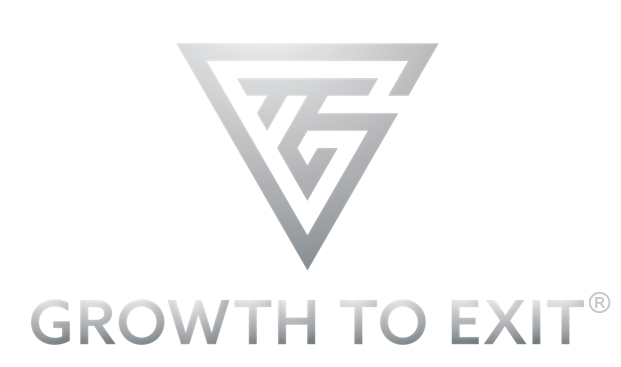Finding the Right Buyer for Your Business

When you have been running your own business for years, one of the things that you probably always keep in the back of your mind is who is going to become the successor after you retire. If no one in your family is interested in taking over your company, and your kids do not want to be part of it either, then you have to find yourself a suitable buyer. Regardless of whether you built the business from scratch, or succeeded it from your parents, or bought it from somebody else, it is natural to think that at some point, another person will become its owner and lead it in the future.
Therefore, it is critical to start looking for the right buyer early on, years before your retirement, and create a succession plan for the sale of your business and the transition of ownership. In fact, according to Inc.com, the search for the right candidate can take between 5-10 years, so you should really start thinking about your business succession already at the age of 50-55. Only this way, you will have enough time to create an exit plan, find a qualified successor and prepare him or her for the future management of your company.
The big question is, if you want to sell your business, how do you find the right successor, especially if you do not know anyone who might be interested in buying it? You might be cautious with perspective buyers and you might fear that your life's work is going to fall in the wrong hands. This is normal and expected, and it is something all entrepreneurs go through at some point in their life. After all, you want to sell a company that you spent years or decades of your life working on, to someone that you do not know. Not only you want to ensure that they will be skilled enough to take over the company, but also, you want to ensure that the agreement you reach with them for the sale, will finance the rest of your life and meet your retirement goals.
So, where should you start looking for the right buyer for your business?
.
Contact People You Know
The first thing you can do when starting to look for a potential buyer for your business, is to reach out to people that you know. Maybe you have met people in the past that expressed an interest in buying your company or investing in it. These might be people in your close circle, but also business-minded people from different industries, with entrepreneurial ambitions and the ability to buy your business and continue its successful run into the future. You should also talk to your trusted advisors, who might have connections with people that buy and sell businesses.
Networking with people from various business cycles is the best way to find a potential successor, as you open the door to many possibilities. At the end of the day, you are looking for a qualified entrepreneur, who will be able to fill your shoes, help the company grow and keep your legacy alive after your retirement. So, to find that right person you have to keep your options open.
On the other hand, something that can be a little tricky when it comes to selling your business to people that you know, is the sale terms and price that you agree to with the other party. In many cases, business owners tend to agree for a lower price and more flexible terms when selling their business to someone that they already know or have met through common connections, so beware that you might end up selling your business for less than what you had initially in mind, if you follow this strategy.
.
Open Yourself to a Large Pool of Potential Buyers
One of the most common selling techniques that many business owners implement is the break wide strategy. For this strategy you will need to hire either a business broker or an investment banker, who will be your “sell side advisor”, and will help you, not only prepare your business for sale and maximize its value, but will also put your company up for sale in front of a very broad pool of potential buyers. This broad pool means that your company will be in the marketplace, where a large number of people can see that you are trying to sell and make attractive offers to you. The bigger the pool of candidate buyers is, the more offers and options you will have to choose from.
However, the decision on how to place your company into the marketplace is very important, especially if you are a small business owner, because you want to consider all the risks of the break wide strategy. For example, if you have tenuous customer relationships, there is a possibility that the minute you announce that your company is up for sale, your competitors will pounce on your client base and try to steal your customers.
Additionally, your sale announcement can create a turmoil within your company, with your employees and business partners thinking that they might lose their jobs or that your business is losing its value. This is definitely something that you want to consider before the sale, as your human capital will be one of the key factors of the negotiations process.
.
Consider your Competitors
Another selling technique that is often overlooked is the narrow surgical targeted strategy, where you reach out to your competitors and see if they are interested in buying your business. With this strategy you can either hire a sales advisor to guide you on how to approach your competitors, or you can go by yourself directly to a competitor and make a buyout proposal.
The truth is that most small, family held or closely held businesses, tend to not adopt the break wide strategy, because they are afraid of losing their customers and employees, and therefore, tend to adopt a more direct and targeted strategy to identify qualified buyers. With the narrow surgical targeted approach you can ensure that word about the sale of your business does not break out, since you are not openly putting your business up in the marketplace for sale.
If you are in a very competitive industry, you know exactly who your competitors are, because you compete against them for the customer’s attention and trust. So, thinking of your competitors as potential successors to your business, is actually a very logical idea, but it can create several complications if you are not experienced in negotiations and go at it alone without an advisor on your side. Of course, you do not want to give your competitors your entire playbook, tell them how you manage customers, what your pricing is, what is your customer acquisition strategy, etc. So, managing all that information can be difficult, and you have to be tactical, considerate and diplomatic.
In the scenario of a competitor buyout, you are highly advised to hire an experienced attorney who can explain to you what you should and should not share. You must have your NDAs prepared and make sure to have a written letter of intent that proves the seriousness of the purchase intention. Until you have a concrete deal with the buyer, you should avoiding giving away key information about the business.
.
Consider an Employee Buyout
In a previous blog post on Growth To Exit, we discussed in detail the employee buyout option that you should consider when thinking about selling your business. An employee buyout is basically the acquisition of all or a majority of the owner's shares in the company by one or more employees, and can take place over time or at once. This is a very “safe” and rather easy option – compared to the other selling strategies – but it is often overlooked by business owners, not because they do not have suitable and skilled employees to take over the company, but because they have never discussed it with their staff, or believe that employees cannot afford the company. Employee ownership is, however, a great way to pass a business on to the next generation and ensure that local ownership continues and jobs are preserved in local communities.

.
The Bottom Line
As a business owner, you know that at some point in your business life, you will have to find the right buyer for your company, whether it is a family member, an employee, a competitor or a buyer that you have never met before. Especially, if you built the company from zero, or even if you have worked at it for years, you want to find a successor who will protect the company, help it grow and develop further, protect your loyal employees and keep your customers satisfied. You have to find the right buyer that will carry on your brand, your legacy and the reputation of your company.
There are always a lot of sell side advisors that can take you through this process and help you receive great offers from sophisticated buyers. The perfect buyer is out there, and maybe you already know them. It is either a competitor, a close connection, an internal employee or somebody else that has expressed interest. Finding the right buyer, not just a financial decision. It really is a personal decision for you and your family because you want to feel good about the transaction after the close, and be assured that your company will continue to thrive in the future.
The best strategies to find the right buyer for your business and your specific needs are thoroughly discussed on Module 10 of the Growth To Exit course. To find out more and learn how to get started with your exit plans, visit Growth To Exit and sign up to our business and entrepreneurship newsletter.



